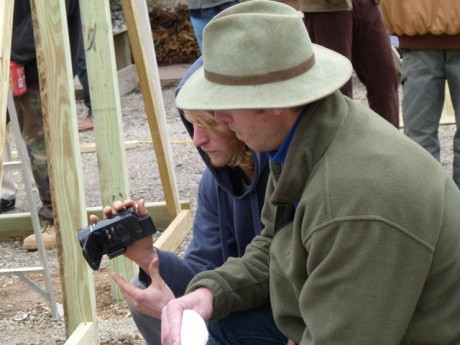Gardening is not just about planting seeds. It is a tradition that is often passed down through generations. Seeds may be shared across families, communities, and time. The seeds carry with them not just genetic diversity, but also long-standing traditions. They provide more than sustenance. They support and reinforce culture.
With plant varieties dwindling due to a host of social and ecological factors, modern agriculture reduces the diversity of traditionally planted seeds. Instead of planting a large variety of open-pollinated crops, farmers often plant single “improved” crops. As a result, older varieties are no longer saved. Hybrids replace them. When heirloom seeds are no longer planted, they will disappear forever.
Dr. Brian Campbell, agricultural anthropologist at the University of Central Arkansas (UCA), says a movement to track and catalog heirloom seeds that had not reached Arkansas or the Ozarks prompted him to start a seed bank at UCA five years ago along with a seed saving and seed swapping organization called Conserving Arkansas’ Agricultural Heritage (CAAH).
 “At risk,” says Dr. Campbell, “is people’s knowledge of how to gain food security through the production of their own food and the preservation of seed. Today, farming is factory. Seed genetics are copyrighted. The greatest treasures on earth, true-to-type ‘heirloom’ or open pollinated seeds, seeds that thrive in specific regional conditions, are at risk of extinction right in our own back yards. We need open pollinated varieties to allow people to grow their own food, because they grow true, and we can save the seeds that grow best and use them for the next season using seeds best adapted to the local conditions.
“At risk,” says Dr. Campbell, “is people’s knowledge of how to gain food security through the production of their own food and the preservation of seed. Today, farming is factory. Seed genetics are copyrighted. The greatest treasures on earth, true-to-type ‘heirloom’ or open pollinated seeds, seeds that thrive in specific regional conditions, are at risk of extinction right in our own back yards. We need open pollinated varieties to allow people to grow their own food, because they grow true, and we can save the seeds that grow best and use them for the next season using seeds best adapted to the local conditions.
The pictures of Dr. Campbell here on our website were taken when he and a group of his students attended the Ozark Folk Center/LINKPROJECT cold frame workshop. Here are two short videos of Dr. Campbell as he investigates the heritage of the White Family Green Beans and the Simmons Family Red Ripper Peas.

One Response